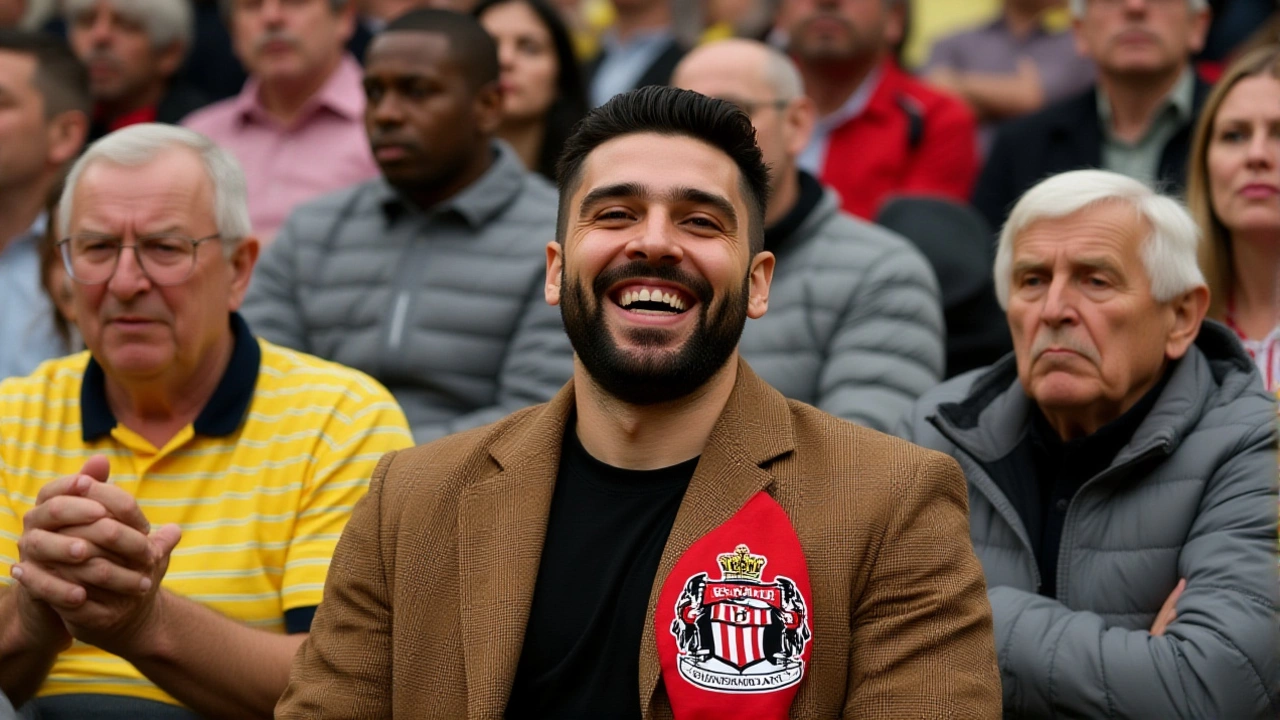When Liverpool Football Club announced the permanent transfer of Italian forward Fabio Borini to Sunderland AFC on the final day of the 2015 summer window, the move instantly reshaped the relegation battle in the Premier League. The deal was confirmed at 11:17 AM UTC on 31 August 2015, with the Black Cats’ home ground, the Stadium of Light, set to welcome the new No. 9. An initial £8 million fee – potentially rising to £10 million with add‑ons – marked one of the last big‑ticket transfers before the deadline closed.
Background: Borini’s roller‑coaster at Anfield
Born on 2 March 1991 in Bologna, Borini arrived at Anfield in July 2012 from AS Roma for a reported £11 million. The promise was clear: a quick‑silver forward who could thrive under Brendan Kenny’s attacking philosophy. In reality, recurring hamstring problems and a loss of confidence limited him to three goals in 38 appearances across all competitions – a stark contrast to the ten‑goal haul he managed during his 2013‑14 loan spell at Sunderland.
That loan season had been a turning point. Borini scored against Chelsea in the fifth round of the Capital One Cup and netted a dramatic equaliser at Manchester United in the semi‑final first leg, helping Sunderland reach the final at Wembley. More importantly, his ten goals in all competitions were pivotal in the Black Cats’ fight against relegation, a feat fans still reminisce about.
The transfer deal in detail
- Initial fee: £8 million (≈ $12.8 million at 2015 rates)
- Performance‑related add‑ons: up to £2 million, bringing the total to £10 million
- Contract length: four years, with Borini taking the No. 9 shirt
- Medical: completed on 31 August 2015, confirming fitness for the upcoming season
Sources at Sky Sports and the BBC echoed the £8 million figure, while an ESPN report by Doug McIntyre confirmed the same amount. The deal slipped through just before the transfer window slammed shut, leaving Liverpool with a slimmer striking roster after the summer arrivals of Christian Benteke, Danny Ings and Roberto Firmino.
Sunderland’s situation and expectations
At the time of the signing, Sunderland, managed by Dutch veteran Dick Advocaat, were languishing at the bottom of the table with six goals in their opening four fixtures. Advocaat told BBC Sport that Borini would provide “a fresh option in the final third” and could be the catalyst needed to spark a turnaround.
Fans were cautiously optimistic. The memory of Borini’s loan‑season heroics was still fresh, and his familiarity with the club’s style made the signing feel less like a gamble and more like a homecoming.
Immediate impact: 2015‑16 season recap
Borini started 22 Premier League matches for Sunderland that campaign, chipping in with several crucial goals toward the end of the season. His strike against West Bromwich Albion in March secured a 2‑1 win that lifted the club three points clear of relegation rivals Newcastle United. In the final weeks, he added a brace against Southampton, sealing Sunderland’s survival on the penultimate matchday.
Statistically, his contribution was modest compared with the loan‑year tally, but the timing of those goals proved decisive. Sunderland finished 17th, escaping the drop by a single point.

Long‑term repercussions and subsequent moves
Unfortunately, the reprieve was short‑lived. Sunderland slipped back into the Championship at the end of the 2016‑17 season, prompting Borini to seek a fresh challenge abroad. He joined AC Milan on loan for 2017‑18, a move that became permanent on 1 July 2018 after Milan exercised their option. Limited playing time in Italy saw him switch to Hellas Verona in January 2020, where he finished the 2019‑20 Serie A season with three goals in fourteen appearances.
For Liverpool, the sale cleared a squad spot and a modest wage bill, letting the club focus on the newly signed attacking trio that helped them finish fourth in the 2015‑16 league. For Sunderland, Borini’s brief revival highlighted how a single player can tip the scales in a relegation scrap, even if the effect is temporary.
Key Facts
- Transfer date: 31 August 2015 (transfer‑window deadline)
- Fee: £8 million (add‑ons to £10 million)
- Contract: four years, No. 9 shirt
- Previous Liverpool record: 3 goals in 38 appearances
- Loan season at Sunderland (2013‑14): 10 goals, helped avoid relegation
Frequently Asked Questions
How did Fabio Borini’s transfer affect Sunderland’s relegation battle?
Borini scored three vital goals in the closing stages of the 2015‑16 season, including a winner against West Bromwich Albion that lifted Sunderland three points clear of Newcastle United. Those contributions directly helped the Black Cats finish 17th and avoid the drop.
Why did Liverpool decide to sell Borini after signing Benteke, Ings and Firmino?
The summer arrivals crowded the striker positions, pushing Borini down the pecking order. With limited playing time and a desire to recoup part of his £11 million purchase price, Liverpool opted to sell him for £8 million, freeing up wage space for the new forwards.
What were the financial terms of the deal?
The base fee was £8 million, with performance‑related add‑ons that could raise the amount to £10 million. The agreement also included a four‑year contract for Borini and a medical check that confirmed his fitness before the transfer was finalised.
What happened to Borini after his stint at Sunderland?
After Sunderland’s relegation in 2017, Borini moved to AC Milan on loan, which later became a permanent transfer in July 2018. Limited minutes in Italy led to a free‑transfer move to Hellas Verona in January 2020, where he finished the season with three goals.
How did Borini’s performance at Liverpool compare to his loan spell at Sunderland?
At Liverpool, Borini managed just three goals in 38 total appearances, hampered by injuries and limited minutes. By contrast, during his 2013‑14 loan at Sunderland he netted ten goals across all competitions, playing a decisive role in the club’s fight against relegation.





